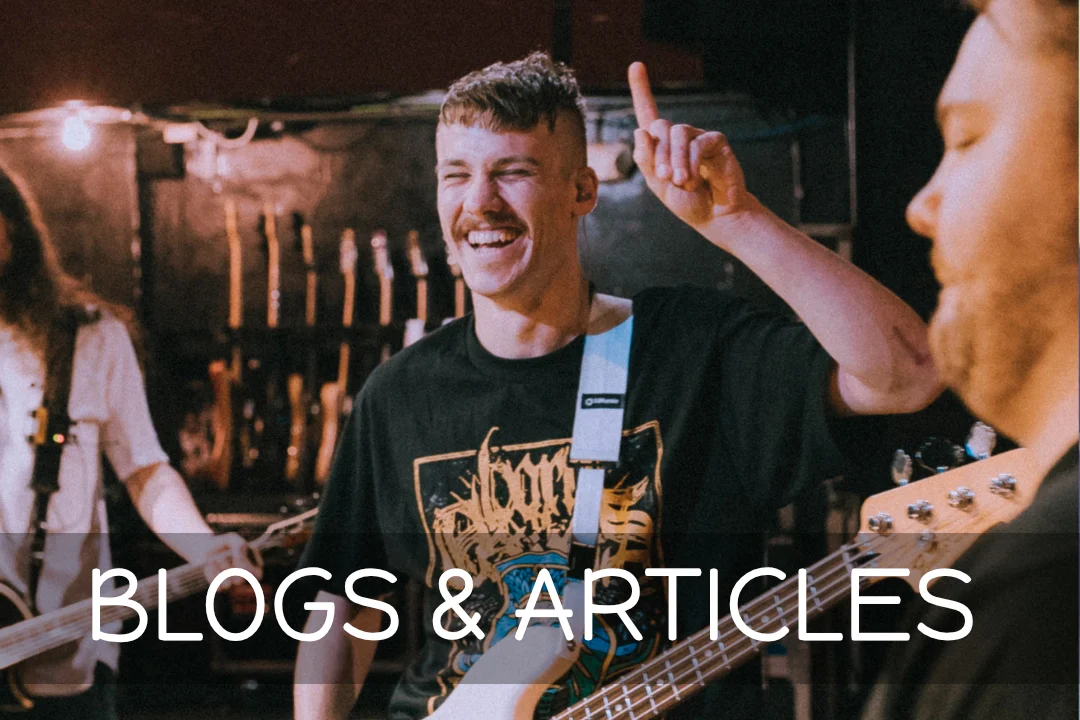The major scale is the most important scale in music. It is usually the scale that we relate music to when we talk about intervals or numbering a chord progression. Maybe you have heard someone say “we are playing a 1 4 5 in G” and you haven’t got a clue what they are talking about. Or maybe you have seen chords like Amajor9, or Bminor11th and wondered what they mean?
Well it is simpler than it sounds and really understanding the major scale is a very important thing to do as a guitarist and as a musician.
1. First things First – G major scale (E Shape)
So lets get playing! The first thing to learn is of course the major scale; I have chosen to get started in G major. This scale can obviously be moved around the neck and played in any key but this is a great place to start.
You will notice that I have included a chord at the start, that is a G major 7 chord. When practicing scales it is important to think about the chords you are playing over, so get used to practicing it this way, listening to the chord before hand. This will help you to start understanding the sound that goes with each scale/mode.
2. The Formula
Now you know how to play a major scale, you can start thinking about how it has been constructed. Remember that it is the most important scale and that is because when we talk about intervals the major scale is what we refer it to.
So the major scale formula is simply, 1 2 3 4 5 6 7
So in the key of G major, which has 1 sharp in its key (of which is F#), the notes are-
1 2 3 4 5 6 7
G A B C D E F#
So now you know this is the formula try playing the scale again and look at all the intervals within it. Take a look at it on a piano if that helps:
3. Ways to practice the Major Scale
So the next thing we need to do in order to get this scale under our fingers is to practice! Playing the scale over and over again (like the example above) is great at first, but after a bit you are going to start getting very bored of just playing a scale repetitively. So here are a few ways of making it more fun...
Going up and down the scale in 3rds
This is a really great way of getting to know the scale, give it a go and remember to play the chord when you start.
Going up and down the scale in 6ths
One of my personal favourites in going up and down the scale in 6ths, it’s a really cool sound and it gets you away from just playing the same old intervals all the time.
4-note-arpeggios
Another really awesome thing you can do with the major scale is create a 4-note-arpeggio on each interval of the scale. This shows you all the chords available to you. It’s sounds pretty incredible!
4. Play to music
You can keep devloping these ideas and once you start to feel more comfortable then it is time to play along to a chord progression. Here is a chord progression I have created in G major, play along with the chords and get to know all the changes.
First learn the chords-
Then play along with the chord progression-
5. Improvise!
The final challenge is to Improvise! Improvisation is all about using the tools that you have in a creative way. Play melodically, think of yourself as a singer and try and come up with licks that sound cool and catchy! Here is my attempt:
Feel free to add your own chords to the mix and come up with some more ideas. You can also try this in different keys and see how you get on! Hopefully this has given you some creative ways to play and learn the major scale!
If you are looking for lessons in guitar, Newbridge House of Music offer one-to-one lessons in guitar, bass, piano, vocals, ukulele, songwriting and music theory. Book your first free lesson now and start your musical journey with us!
We have released our first book!
This book teaches you every chord you will ever need in all five CAGED shapes, allowing you to master the fretboard and helping you to develop and expand your chord knowledge whilst keeping it fun and easy to grasp. Get the book and take your chord playing to new heights. 'Every Chord Shape You Will Ever Need' is ideal for guitarists trying to get to the next level and who like to play, perform and write music.







